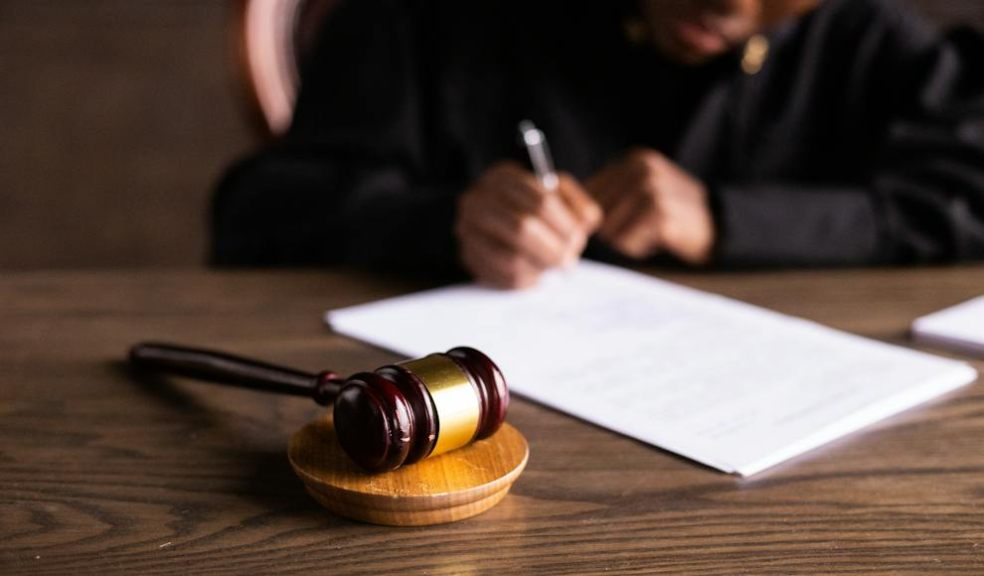
Navigating the Legal Maze: A Guide to the Tasks and Duties of Personal Injury Lawyers
In the complex field of personal injury law, lawyers play a crucial role in finding justice for people who have been harmed by someone else's actions. Handling the legal intricacies of personal injury cases demands particular skills and a deep commitment to advocating for the rights of those who are injured. In this guide, we'll examine the specific tasks and responsibilities of personal injury lawyers, providing insight into the intricacies of this important aspect of the legal profession.
What Is A Personal Injury Lawyer?
A personal injury lawyer is a legal expert specializing in helping individuals who have been harmed due to someone else's negligence. Situations leading to personal injury may include car accidents, slips and falls, medical malpractice, and similar incidents. Seeking advice from a nearby personal injury lawyer is crucial because they are well-versed in local laws and court processes, enhancing their ability to support a successful case.
For example, if you've been in a car accident in San Francisco, it's crucial to find the best auto accident lawyer in San Francisco. A local lawyer will understand California's traffic laws and be well-acquainted with the specific legal nuances in San Francisco, increasing your chances of a positive outcome in your personal injury claim. Now, let's move on to understanding the crucial duties of a personal injury lawyer.
1. Client Consultation and Communication

The journey begins with a thorough client consultation. Personal injury lawyers delve into the specifics of the case, aiming to grasp the nuances that will form the foundation of legal proceedings. In some situations, especially those involving domestic incidents or ongoing threats, protective orders may also be necessary to ensure client safety during litigation. Firms like Kania Law Office are known for handling such sensitive matters with discretion and care. Effective communication is key, as lawyers must articulate complex legal concepts in a way that is clear and accessible to their clients. Managing client expectations and maintaining open lines of communication throughout the legal process is fundamental to building trust and ensuring a collaborative lawyer-client relationship.
2. Investigation and Case Evaluation
Once engaged, personal injury lawyers embark on a comprehensive investigation to gather evidence supporting their client's claims. This may involve collaborating with various experts, such as accident reconstruction specialists or medical professionals. The goal is to assemble a compelling case built on a solid foundation of facts. Lawyers meticulously evaluate the strength of the case, considering factors such as liability, damages, and the potential impact on the client's life.
3. Legal Research and Case Preparation
The legal field is always changing, so personal injury lawyers need to keep up with the latest laws and court decisions that could affect their cases. During this phase, lawyers do thorough legal research, carefully studying laws and past court decisions. With this knowledge, they create different legal documents, like complaints (listing the plaintiff's claims), motions (formal requests to the court), and discovery requests (seeking information from the other party). Case preparation includes not just understanding legal details but also building a strategic plan based on these insights.
Lawyers conduct thorough fact investigations, analyzing strengths and weaknesses and reviewing relevant precedents. They develop strategic plans, communicate with clients, and draft persuasive legal documents. Filing court documents, preparing for negotiations, and anticipating court appearances are integral. Ongoing education ensures awareness of legal changes. In essence, this process involves a dynamic blend of investigative, analytical, and communicative tasks to build a robust foundation for effective legal representation and strategy.
3. Negotiation and Settlement

Negotiations and settlements constitute pivotal aspects of legal proceedings. After thorough case preparation, lawyers engage in discussions with opposing parties to explore potential resolutions outside the courtroom. This involves presenting compelling arguments, leveraging case strengths, and addressing weaknesses to reach a mutually agreeable outcome.
Lawyers guide clients through settlement options, weighing the benefits of avoiding prolonged litigation against potential court outcomes. Negotiation skills are paramount in securing favorable terms, and lawyers often act as mediators to facilitate agreements. Successful negotiations not only save time and resources but also offer clients a degree of control over the resolution, contributing to overall client satisfaction.
4. Litigation and Court Representation
When negotiations do not result in a satisfactory resolution, personal injury lawyers move to the litigation phase. This involves filing lawsuits and representing clients in court proceedings. Lawyers become advocates in the truest sense, presenting arguments, examining witnesses, and cross-examining opposing witnesses during trials. Adherence to court rules and procedures is paramount, and lawyers must navigate the complexities of the legal system with precision while steadfastly advocating for their clients.
5. Client Advocacy and Empathy
Beyond the legal intricacies, personal injury lawyers must embody a strong sense of client advocacy. This involves championing the rights and interests of the injured party with unwavering dedication. Equally important is the ability to express empathy for the challenges the client faces. Personal injury cases often involve profound personal suffering, and lawyers serve as both legal representatives and sources of support throughout the challenging legal journey.
6. Ethical Considerations

Upholding the highest ethical standards is a non-negotiable aspect of practicing law, and personal injury lawyers are no exception. Upholding client confidentiality, steering clear of conflicts of interest, and ensuring openness and honesty in all communications are ethical necessities. Clients entrust their lawyers with significant confidence, and ethical behavior is fundamental to preserving this trust and upholding the integrity of the legal profession.
7. Continuing Legal Education
The legal landscape is dynamic, with laws and precedents evolving. Personal injury lawyers engage in continuous legal education to stay informed about these developments. Seminars, workshops, and conferences become essential avenues for enhancing skills and knowledge. Adapting to changes in the legal landscape ensures that personal injury lawyers are well-equipped to navigate the ever-shifting terrain of their practice, ultimately benefiting their clients.
Wrapping Up
Personal injury lawyers act as champions of justice for those who have been harmed by the carelessness or deliberate actions of others. Navigating the legal maze requires not only a deep understanding of the law but also effective communication skills, a commitment to client advocacy, and unwavering ethical conduct. By meticulously executing tasks and duties, personal injury lawyers contribute to the pursuit of fair compensation and accountability, providing a crucial service in the realm of civil justice. In doing so, they help injured parties navigate the complexities of the legal system and find resolution in the face of adversity.




















